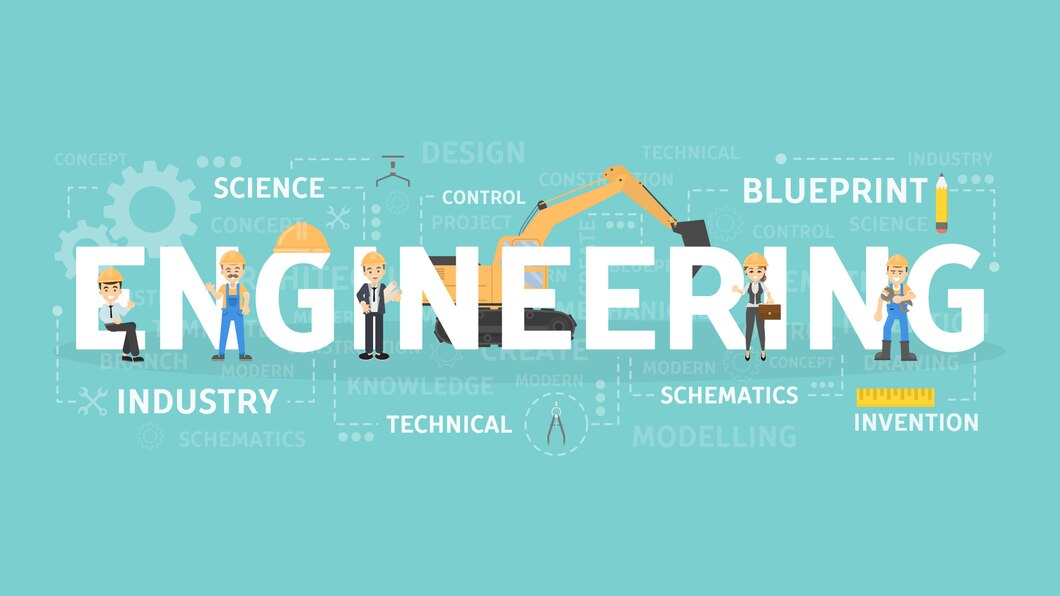Industrial engineering is a discipline that focuses on optimizing complex systems and processes to improve productivity, efficiency, and safety. By combining principles of engineering, mathematics, and management, industrial engineers work to reduce waste, enhance system performance, and streamline operations across various industries. Whether in manufacturing, healthcare, logistics, or service industries, industrial engineering plays a crucial role in ensuring that organizations operate efficiently.
In this blog, we will explore the scope of industrial engineering, its key areas of focus, and the impact it has on both businesses and society.
What is Industrial Engineering?
Industrial engineering is a branch of engineering that deals with the optimization of complex systems or processes. It involves designing, analyzing, and improving systems that integrate people, materials, equipment, information, and energy to produce goods or services efficiently. Industrial engineers are often called problem solvers who work to improve the performance and quality of systems across various sectors.
Industrial engineering is not limited to manufacturing; it also spans other areas such as healthcare, supply chain management, logistics, and service industries. The ultimate goal of industrial engineers is to create systems that enhance productivity, reduce costs, and improve overall outcomes for organizations and society.
Key Areas of Focus in Industrial Engineering
Industrial engineering encompasses several key areas, all of which work toward optimizing systems and improving performance. Let’s take a closer look at these areas:
- Operations Research and Optimization
Operations research is one of the primary tools used by industrial engineers to analyze complex systems and identify the most efficient ways of operating. It involves the use of mathematical models, algorithms, and simulations to make data-driven decisions that optimize processes.
Optimization techniques are employed to improve various aspects of a system, such as reducing costs, minimizing wait times, maximizing throughput, and enhancing the quality of service. Industrial engineers apply these techniques in areas like production scheduling, inventory management, and resource allocation.
- Manufacturing Systems and Process Improvement
Manufacturing is one of the most important areas where industrial engineers make a significant impact. They work to design and improve manufacturing systems by focusing on streamlining production processes, reducing waste, and ensuring that resources are used effectively.
Lean manufacturing principles are often applied to eliminate inefficiencies, such as excess inventory or unnecessary steps in the production process. Six Sigma is another method commonly used by industrial engineers to improve quality and reduce defects, ensuring that products meet strict specifications and customer expectations.
- Supply Chain Management and Logistics
Efficient supply chain management is critical to the success of any business that relies on the movement of goods or services. Industrial engineers design systems that optimize the flow of materials and products through the supply chain, ensuring that goods are delivered on time and at the right cost.
By improving logistics operations, such as transportation, inventory management, and warehousing, industrial engineers help companies reduce costs and enhance the customer experience. Advanced technologies like RFID (Radio Frequency Identification) and GPS tracking are also incorporated into supply chain management systems to improve real-time tracking and decision-making.
- Ergonomics and Human Factors Engineering
Human factors engineering, also known as ergonomics, is an important aspect of industrial engineering that focuses on improving the interaction between people and systems. Industrial engineers study the physical and cognitive abilities of workers to design tools, workstations, and workflows that enhance performance and reduce the risk of injury or strain.
By applying ergonomic principles, industrial engineers can create safer and more efficient work environments that boost productivity and employee well-being. This is particularly relevant in industries like manufacturing, healthcare, and logistics, where workers are often exposed to physically demanding tasks.
- Quality Control and Assurance
Quality control (QC) and quality assurance (QA) are essential to maintaining high standards of production and service delivery. Industrial engineers are responsible for ensuring that products and services meet the desired level of quality, whether through testing, inspections, or process controls.
Industrial engineers use statistical tools and methodologies to monitor and control processes, ensuring that defects are identified and corrected before products reach the customer. Techniques such as Statistical Process Control (SPC) and root cause analysis are applied to detect variations in processes and improve overall quality.
- Sustainability and Green Engineering
In today’s environmentally conscious world, industrial engineers are increasingly focusing on sustainability. This includes developing strategies to reduce energy consumption, minimize waste, and lower the environmental impact of industrial processes.
Green engineering practices involve designing systems that use resources efficiently and reduce carbon footprints. Industrial engineers work on projects to optimize energy usage in manufacturing plants, reduce material waste through recycling, and design eco-friendly products.
Impact of Industrial Engineering on Businesses and Society
Industrial engineering has a profound impact on both businesses and society. Below are a few ways in which this field contributes to economic growth, technological advancement, and improved quality of life:
- Increased Efficiency and Productivity
One of the primary goals of industrial engineering is to make systems more efficient. By analyzing workflows, eliminating bottlenecks, and improving resource utilization, industrial engineers help organizations boost productivity. This leads to increased output with fewer resources, which ultimately contributes to profitability and business success.
- Cost Reduction
Industrial engineers play a key role in cost reduction by identifying areas where waste can be minimized and processes can be optimized. Whether it’s through improving manufacturing techniques, optimizing supply chains, or reducing operational inefficiencies, the work of industrial engineers leads to lower costs for companies.
This cost-saving potential allows organizations to pass on the benefits to customers, which can result in competitive pricing and improved market position.
- Enhanced Customer Experience
By optimizing processes and reducing wait times, industrial engineers contribute to improved customer service and satisfaction. This is especially important in industries such as retail, healthcare, and logistics, where timely delivery and high-quality service are essential.
In healthcare, for instance, industrial engineers work to streamline patient flow, reduce waiting times, and optimize resource allocation, leading to better patient outcomes and satisfaction.
- Environmental Sustainability
Industrial engineers contribute to sustainability by designing processes that use fewer resources and produce less waste. They focus on creating eco-friendly systems that minimize the environmental impact of production and consumption.
By adopting green practices and optimizing energy use, industrial engineers help companies reduce their carbon footprint and contribute to a more sustainable future.
- Job Creation and Workforce Safety
Industrial engineers help create better, safer working environments by applying ergonomic principles to design more comfortable workstations and reduce the risk of injury. Their work also contributes to the creation of jobs in industries like manufacturing, logistics, and healthcare, helping improve the overall employment rate.
Emerging Trends in Industrial Engineering
Industrial engineering continues to evolve, with several emerging trends shaping the field:
- Automation and Robotics
Automation and robotics are revolutionizing industries by improving efficiency and reducing the need for manual labor. Industrial engineers are at the forefront of integrating automation technologies into manufacturing and logistics processes, driving productivity and reducing human error.
- Artificial Intelligence and Big Data Analytics
Artificial intelligence (AI) and big data are transforming industrial engineering by providing new insights into system performance. Industrial engineers are using AI and machine learning algorithms to predict maintenance needs, optimize supply chains, and enhance decision-making processes.
- Industry 4.0
Industry 4.0 is the fourth industrial revolution, characterized by the integration of digital technologies like IoT, cloud computing, and smart manufacturing. Industrial engineers are playing a pivotal role in implementing these technologies to create interconnected, self-optimizing systems that drive greater efficiency and productivity.
Conclusion
Industrial engineering is a critical discipline that helps organizations improve efficiency, reduce costs, and enhance customer satisfaction. Through its focus on system optimization, quality control, supply chain management, and sustainability, industrial engineering contributes to the success of businesses and industries across the globe. As new technologies like automation, AI, and Industry 4.0 continue to shape the field, industrial engineers will play a vital role in driving innovation and creating a more efficient, sustainable future.
If you are interested in reading more blogs related to engineering, you can find blogs from all categories on our website, Engineers Heaven. Please visit our website.





